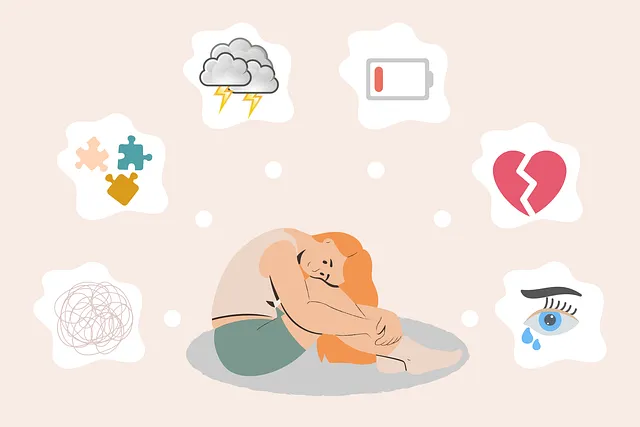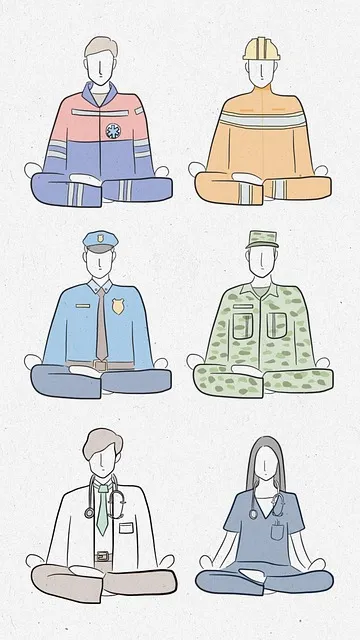Littleton's Kaiser Permanente offers comprehensive inpatient mental health services, teaching effective coping skills through stress reduction, relaxation techniques, physical exercise, communication strategies, and holistic wellness education. Tailored to individual needs, these evidence-based programs empower patients with tools to manage emotional distress, resolve conflicts, and foster self-reliance, ultimately enhancing their long-term mental well-being.
Coping skills development is a vital aspect of maintaining mental well-being. In this article, we explore fundamental strategies for coping with stress and adversity, focusing on the role of understanding these skills in fostering resilience. We also delve into how institutions like Kaiser in Littleton utilize inpatient mental health care to empower individuals in building resilient coping strategies. By examining these approaches, readers can gain insights into enhancing their own coping mechanisms and overall mental health.
- Understanding Coping Skills: A Foundation for Mental Well-being
- Inpatient Mental Health Care: An Overview of Kaiser's Approach in Littleton
- Empowering Individuals: Building Resilient Coping Strategies
Understanding Coping Skills: A Foundation for Mental Well-being

Understanding coping skills is a fundamental aspect of cultivating mental wellness. At institutions like Littleton does Kaiser have inpatient mental health services, individuals can learn and develop effective strategies to navigate life’s challenges. These skills serve as a buffer against stress and emotional distress, promoting overall mental health. By mastering various coping techniques, one can enhance their ability to manage difficult situations, thereby reducing the impact of stressors on their well-being.
Coping skills encompass a range of behaviors and mental processes that help individuals deal with demanding circumstances. This includes stress reduction methods like mindfulness, relaxation techniques, and physical exercise. Additionally, communication strategies play a crucial role in managing conflicts and fostering supportive relationships, which are vital for maintaining good mental health. Through specialized programs and therapeutic interventions, inpatient facilities can equip individuals with robust coping mechanisms, empowering them to lead healthier, more fulfilling lives.
Inpatient Mental Health Care: An Overview of Kaiser's Approach in Littleton

Inpatient mental health care at Kaiser Permanente’s Littleton location offers a comprehensive and supportive environment for individuals seeking intensive treatment. This setting is ideal for those dealing with severe or acute mental health conditions, providing a controlled space to stabilize and improve. The facility utilizes evidence-based practices tailored to each patient’s unique needs, ensuring personalized care. Therapists, psychiatrists, and other mental health professionals work collaboratively to deliver a range of services, including individual therapy, group sessions, medication management, and crisis intervention.
Kaiser’s approach emphasizes not only treating symptoms but also fostering mental wellness. This holistic strategy incorporates various therapeutic modalities, education on self-care practices, and skills development for coping with stressors. By combining medical expertise with a focus on public awareness campaigns and the production of mental wellness podcasts, Kaiser aims to not only treat patients but also contribute to the broader community’s understanding and support of mental health.
Empowering Individuals: Building Resilient Coping Strategies

In a world where mental health challenges are increasingly common, empowering individuals to develop resilient coping strategies is more crucial than ever. Organizations like Littleton and Kaiser, with their inpatient mental health services, play a vital role in this process by offering specialized support for those in need. These institutions recognize that equipping individuals with effective coping skills can significantly enhance their ability to navigate life’s difficulties. By providing resources and programs focused on conflict resolution techniques, mood management, and communication strategies, they foster self-reliance and resilience.
The development of strong coping skills allows individuals to respond to stress, anxiety, or trauma more adaptively, preventing escalation into more severe mental health issues. Through inpatient care, professionals can offer a safe and supportive environment where individuals learn and practice these strategies under guidance. This holistic approach ensures that patients not only gain tools for immediate relief but also develop long-lasting skills to manage future challenges effectively, ultimately improving their overall well-being.
Coping skills development is a vital component of mental well-being, and organizations like Kaiser in Littleton play a crucial role in empowering individuals through resilient coping strategies. By understanding coping skills and leveraging inpatient mental health care, Kaiser offers comprehensive support to those in need. In summary, Kaiser’s approach focuses on building resilience, ensuring that individuals leave with the tools necessary to navigate life’s challenges effectively. Whether you’re seeking help for yourself or looking into options for a loved one, exploring the resources available at Kaiser could be a game-changer in fostering mental health and overall well-being.






